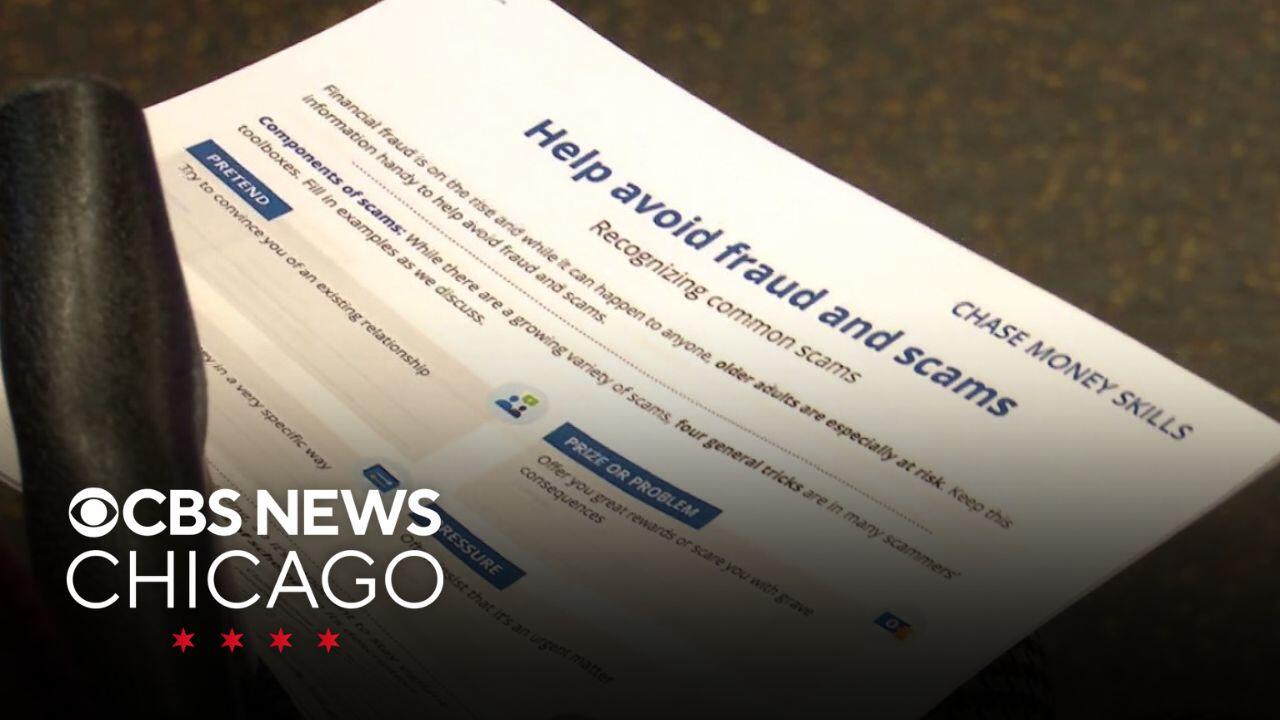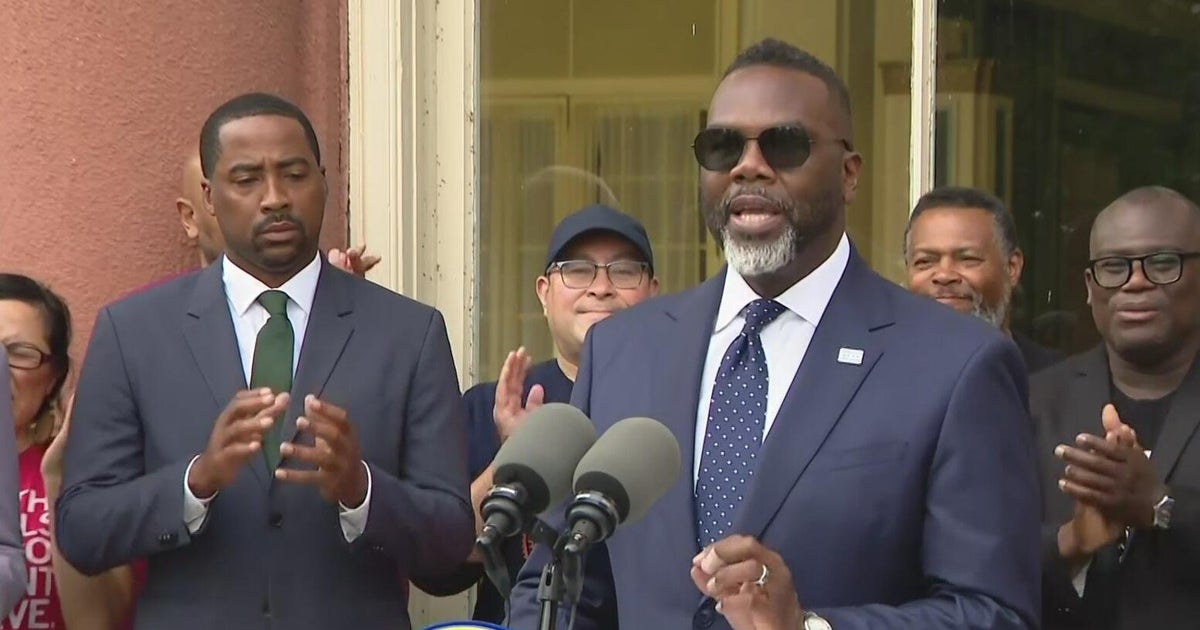Chase Bank holds Chicago seminar to help consumers fight fraud and scams
Fraud cost consumers more than $12 billion in the United States last year, a 25% from 2023. On Tuesday, Chase Bank tried to help frequent victims – senior citizens – to avoid the rip offs.
It's heartbreaking to hear the tales of the elderly and small business owners and single moms reaching out for help after they've lost thousands to fraud. Not only is it expensive, it's also terribly stressful.
So now Chase is trying to get ahead of the problem and educate consumers with some preventive medicine for the pocketbook.
A room full of seniors showed up to the non-profit Chicago Commons in Bronzeville on Tuesday to learn important lessons about their money.
They heard from a Chicago police officer who reminded them not to sit silent if they fall for a scam, and report the crime to authorities.
Over the years, CBS News Chicago have told you about a funeral scam, where victims are asked to tap their phone or card, and instead of donating a few bucks, con artists take thousands from their accounts.
Or check washing, where the bad guys for example take your $60 payment to the gas company and change it to thousands for themselves.
And of course there are the bogus text scams with lots of variations. They often cost consumers tens of thousands of dollars a pop.
"Remember, if it sounds too good, it's probably not true, right?" said Laura Lopez, vice president community manager at Chase, who put on Tuesday's seminar.
Chase warns these are the five most common scams these days:
- Someone you "know," where imposters pretend to be your bank or police or some other trusted organization.
- Romance scams, using fake profiles to steal your money and your heart.
- Messages from family, when scammers pretend to be a grandchild in trouble, for example.
- Computer virus scams, with con artists impersonating tech support form well-known companies.
- And "you've won!" scams, with the perps claiming you're getting a prize or you've inherited money.
"They need to know there's help. But more importantly, they need to know how to protect themselves so it doesn't happen to them," Lopez said. "If you're iffy about a text message, about a strange phone call, please stop and do research before releasing information."
Lopez said scam artists who seek your personal information will often pressure you to act quickly to resolve a non-existent problem.
"It's important to take a break, take a deep breath, and investigate if this is a trustworthy source," she said.
Here's one more takeaway – the four Ps to spot a scam. Scam artists often pretend to be someone else to gain your trust, faking a problem that only you can solve, pressure you to act fast to fix it, with a solution that often involves payment from you.
Head to chase.com/fraud for more tips to help you and your loved ones avoid scams.




